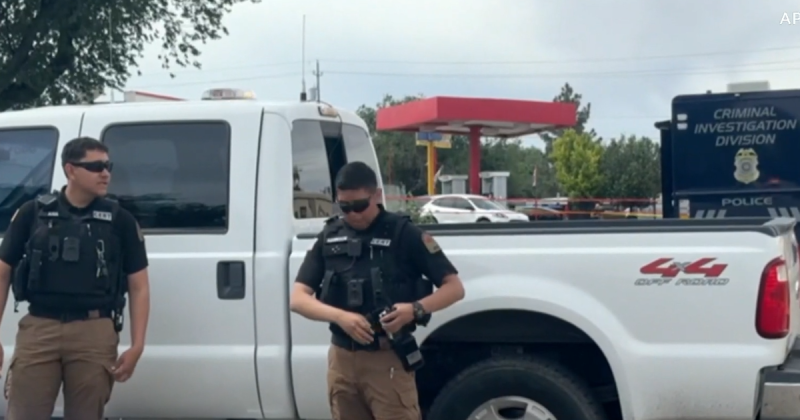
In Albuquerque, New Mexico, the Central Avenue Corridor is known as a ‘war zone,’ plagued by shootings, assaults, and drug abuse. James Grice, owner of a motorcycle shop in this area, faces the grim reality daily, clearing trash and even homeless individuals from his property before opening for business. Bullet holes mar his shop windows, a stark testament to the violence. This escalating crisis led Albuquerque Police Chief Harold Medina to request reinforcements from the New Mexico National Guard in March, citing significant progress in crime reduction but emphasizing the need for sustained momentum.
Despite recent drops in violent crime reported by the Major Cities Chiefs Association – including decreases in homicides, rapes, robberies, and aggravated assaults – the situation remains dire. Governor Michelle Lujan Grisham declared a state of emergency in April and deployed approximately 70 National Guard members, following May training, to the streets of Albuquerque on June 5th. The Governor herself has described witnessing drug dealing, drug use, prostitution, and the alarming presence of human trafficking in the area.
However, this deployment is unlike others. Unlike the armed California National Guard deployed in response to protests, Albuquerque’s National Guard members are unarmed and wear civilian clothes. Their role focuses on community support, crisis intervention, and de-escalation training. The goal, according to Maj. Gen. Miguel Aguilar, adjutant general for the New Mexico National Guard, is to free up Albuquerque police officers to respond to emergency calls. Fifty-three of the deployed Guard members are from the Albuquerque area, fostering a sense of community involvement in the initiative.
The Guard’s involvement has already been tested, assisting with perimeter security during two homicide calls and a SWAT activation. This allowed police officers to focus on other calls for service. Yet, opinions are divided. Det. Shaun Willoughby, president of the Albuquerque Police Officers Association, expresses skepticism, questioning the effectiveness of unarmed personnel in such a violent environment. He highlights their limitations in intervention and arrest, raising concerns about their ability to significantly impact the situation.
Civil liberties advocates also voice concerns about any measure that increases policing. Meanwhile, James Grice, grappling with the daily realities of the ‘war zone,’ believes the city needs all the help it can get. He remains in Albuquerque, determined to support his family and employees despite the dangers. The contrast between the hope for peace and the ongoing struggle is starkly illustrated by a crime scene, a possible homicide, discovered just a block from Grice’s shop immediately after the interview with CBS News concluded. The deployment of the National Guard presents a complex and evolving situation, raising questions about the effectiveness of this unique approach to combatting urban crime.










